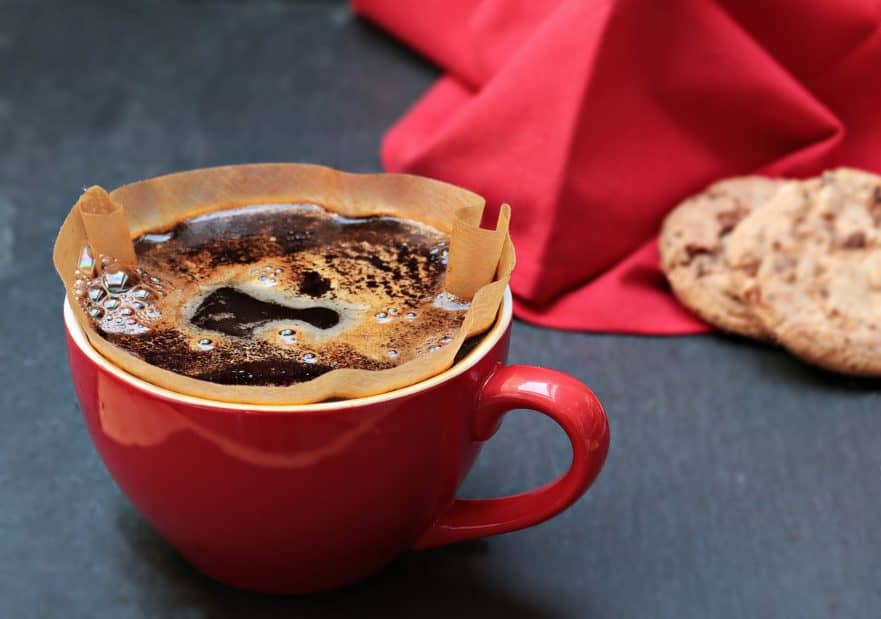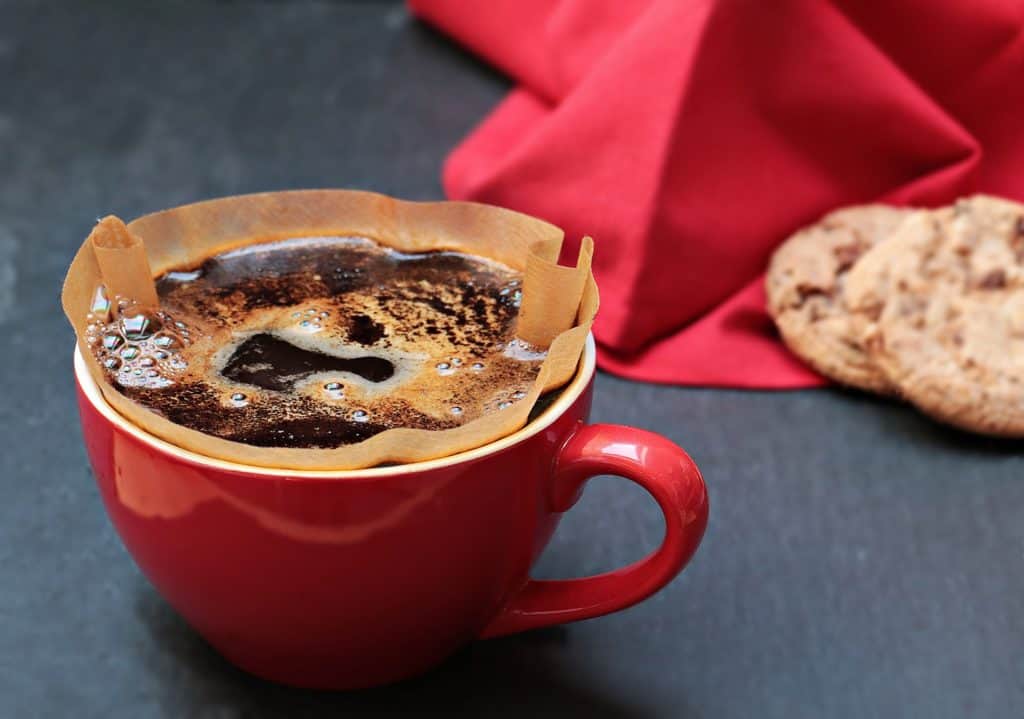
When it comes to brewing your coffee, there are many filters to choose from, if you’re the filtering type. The results between methods can deliver markedly different. Should you stick with paper?
There are 3 different types of filters:
- Paper, Metal and Cloth. Paper coffee filters remove the big pieces of coffee and the oils for a cleaner cup.
- Metal coffee filters let through more very fine coffee pieces and gives a thicker taste with more texture.
- Cloth Filters don’t allow any small or large pieces but does let through some oils giving the coffee more texture.
So, do you reach for bleached or unbleached? Are metal filters a better choice? What about cloth…is anyone even using that anymore? Let’s discuss the differences between these three filtering choices.
Paper Coffee Filters
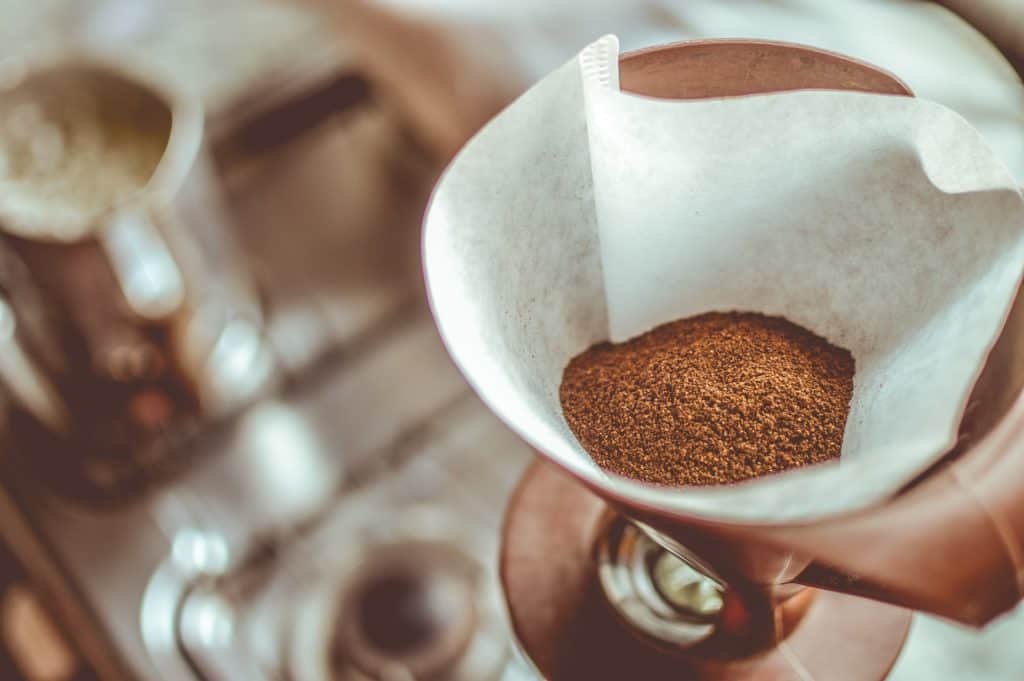
When we think of modern conveniences, paper coffee filters may or may not make it to the top of your list, but they’re definitely easy to use. If you were to take stock of the average pantry shelf anywhere in the world, you would quickly discover just how popular they’ve become.
For the coffee purist, the first question that might come to mind is, “do they add a papery note to my coffee?” The answer is as simple as it is obvious. Of course it does. But is your palate sensitive enough to notice it?
If you want to rid yourself of the possibility of such an offending flavor, the cure is simply to run some brew temperature water through it first and let it drip through before adding your grounds and brewing.
It can be a bit tricky if you’re using standard automatic drip basket filters, and realistically these filters are so thin that they’re not going to add much if papery taste to your cup. Ask yourself if it’s worth it. If you say yes, please don’t burn your fingers.
Cone filters are generally thicker and easier to rinse out before brewing, and their thickness increases the possibility of that papery taste surviving, so it is always best to rinse them first. Let the water drain out into the sink instead of into the pot, or you’ll still get that taste.
Whether a filter is bleached or unbleached doesn’t affect coffee taste. However, some people prefer unbleached filters because they have less of an environmental impact.
The extra steps in the manufacturing process required to bleach the filter send chemicals into the factory waste water stream, for the sole reason that consumers are more likely to psychologically equate “white” with “clean.”
Bleached filters also have a negligible but real pollution impact on the soil because the trace amounts of chemicals remain through decomposition. Brown filters are as clean as their white competitors.
In the final analysis, you won’t taste a difference whether you brew with white or natural paper colored filters. If you want to help save the planet, reach for unbleached.
Metal Coffee Filters
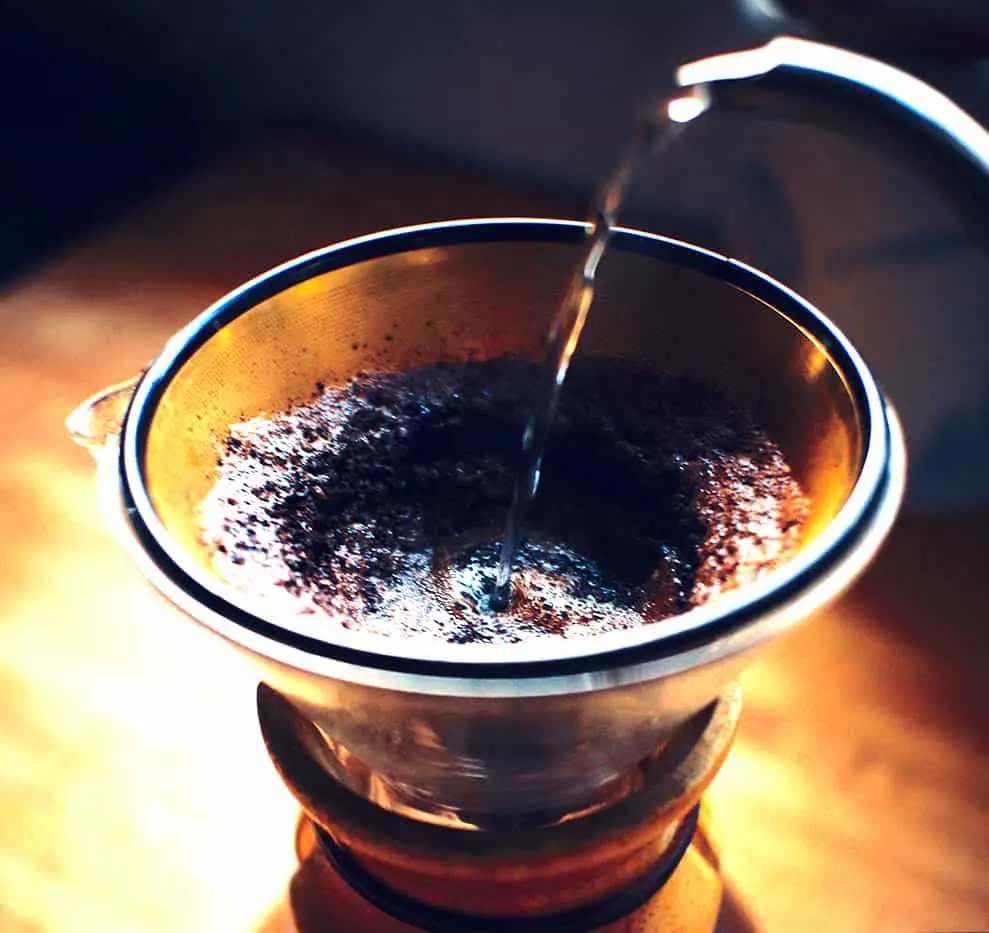
Metal filters are made from stainless steel, thought they are sometimes coated with a thin gold coating. They have been a hit with consumers concerned with the waste associated with their paper counterparts, and can provide years of worry-free use.
Two things to keep in mind when choosing a metal filter are that they are more porous than paper, allowing the coffee to seep through the grounds more quickly, which could make for a weaker brew, and they allow some of the coffee’s natural fatty acids (cafestol) into the pot.
Steep time can be mitigated by putting more grounds in the basket, but dealing with the oils is a trickier task. Current research has suggested a link to possible adverse health effects from drinking coffee brewed by methods that don’t filter out the cafestol.
This could be a problem for you if you have high cholesterol, but the jury is still out on whether eating foods high in cholesterol significantly raises or lowers our totals.
If your health care professional has suggested that you lay off fatty foods, you may want to consider another type of filter. Or you might cut back on other high fat foods so you can continue enjoying your coffee au natural.
Those of you who have discovered the AeroPress will be happy to know that you can now purchase a metal filter to replace their iconic paper discs, which aren’t much of an environmental threat because of their tiny size, but if you are of the mind that every little bit helps, you’ve got the option.
Cloth Coffee Filters
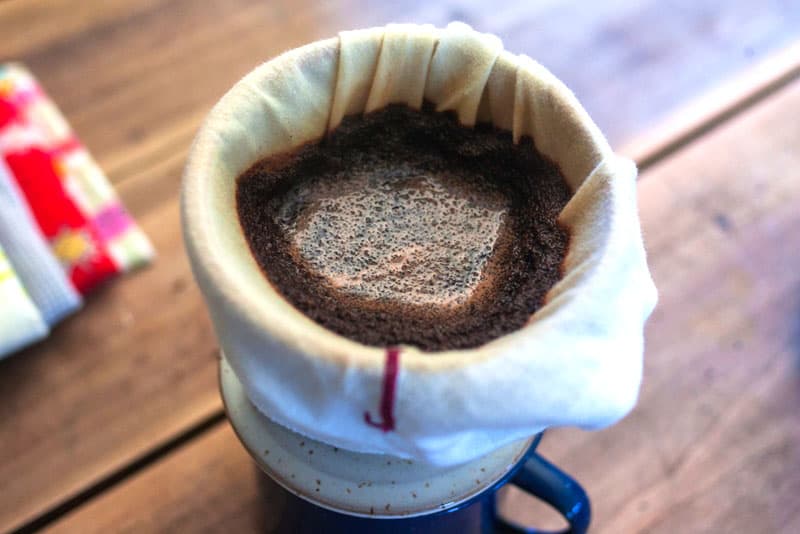
While cloth filters may seem like a recent fad, they’re older than paper filters. Cloth has been used as a coffee filter medium for decades in coffee makers like the Chorreador, and though it was eventually supplanted by paper, it is making a bit of a comeback in the specialty coffee world.
A quick Google search will put you on the right track for current offerings, but bear in mind that most of them are for pour over brewing, which makes sense. Trying to stuff a sock into a drip basket could be a fool’s errand. The tried and true medium for cloth filters is obviously cotton, and most being produced today are made from certified organic cotton.
It is recommended that out-of-the-box cloth filters be boiled for several minutes to properly shrink them and to remove any impurities. I mean, we all wash new clothes before we wear them, right? Same thing here.
One thing you’ll quickly notice is that cloth filters do well with a slightly finer grind. Sort of like metal filters, but with metal you’ll find that a finer grind puts sediment in the pot. Not so with cloth.
The great thing is that after use, all you need to do is shake the grounds out, rinse and dry the filter. They do require a boil every few months to get rid of any oily buildup, but other than that, they’re another environmentally friendly alternative to disposable paper. They also don’t contribute any off flavors, unless you wash them in detergent, which you won’t. Please.
Final Thoughts
If simplicity was the only criteria, we would all use paper filters all the time, but life isn’t always simple. In the battle between simplicity and sustainability, you’ve got some viable options.
Perhaps the only turn off in any of these methods is dumping the grounds and rinsing out the cloth coffee filter, but it’s no worse than dumping grounds out of a paper filter or wringing out a dish cloth.

